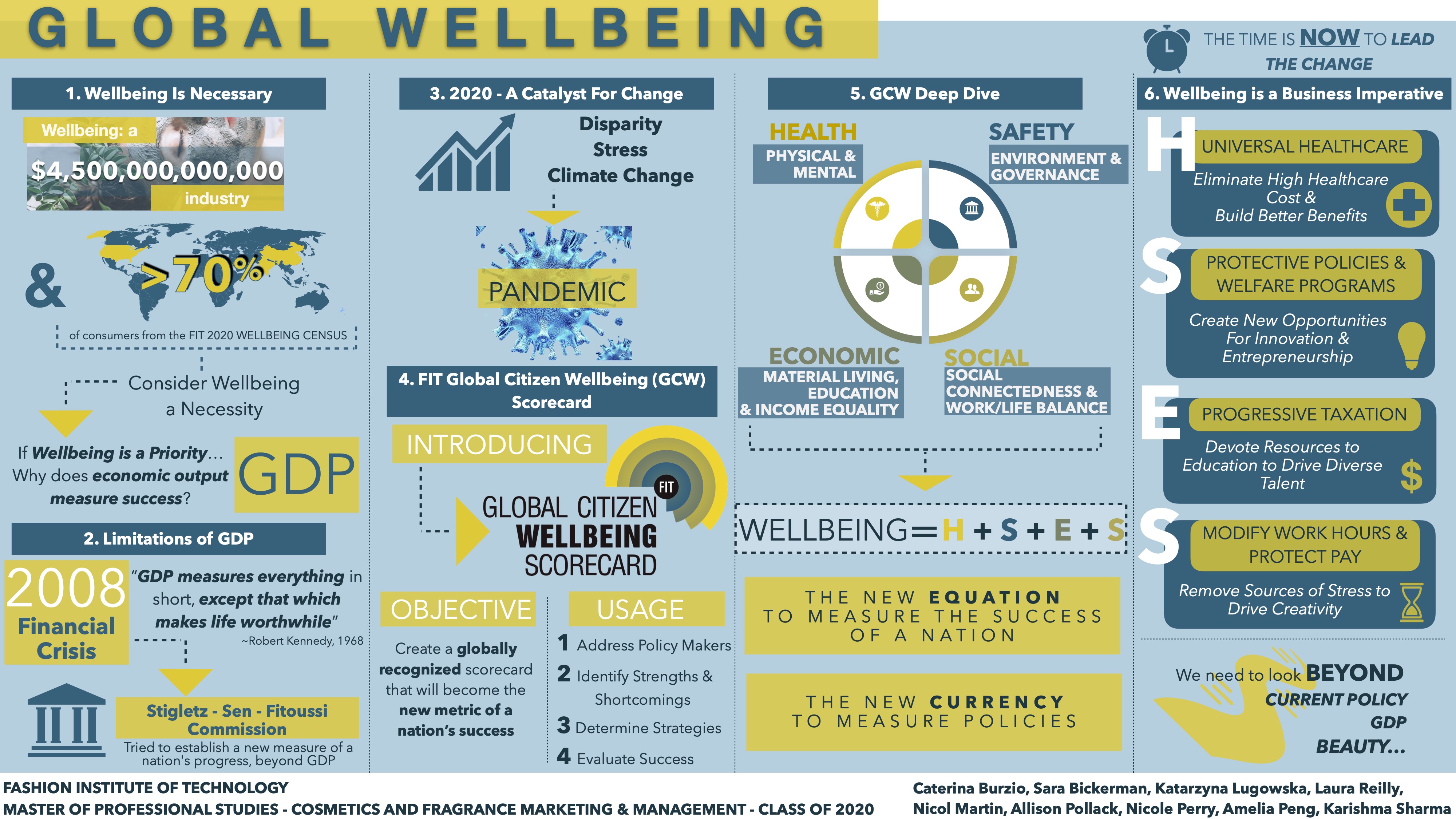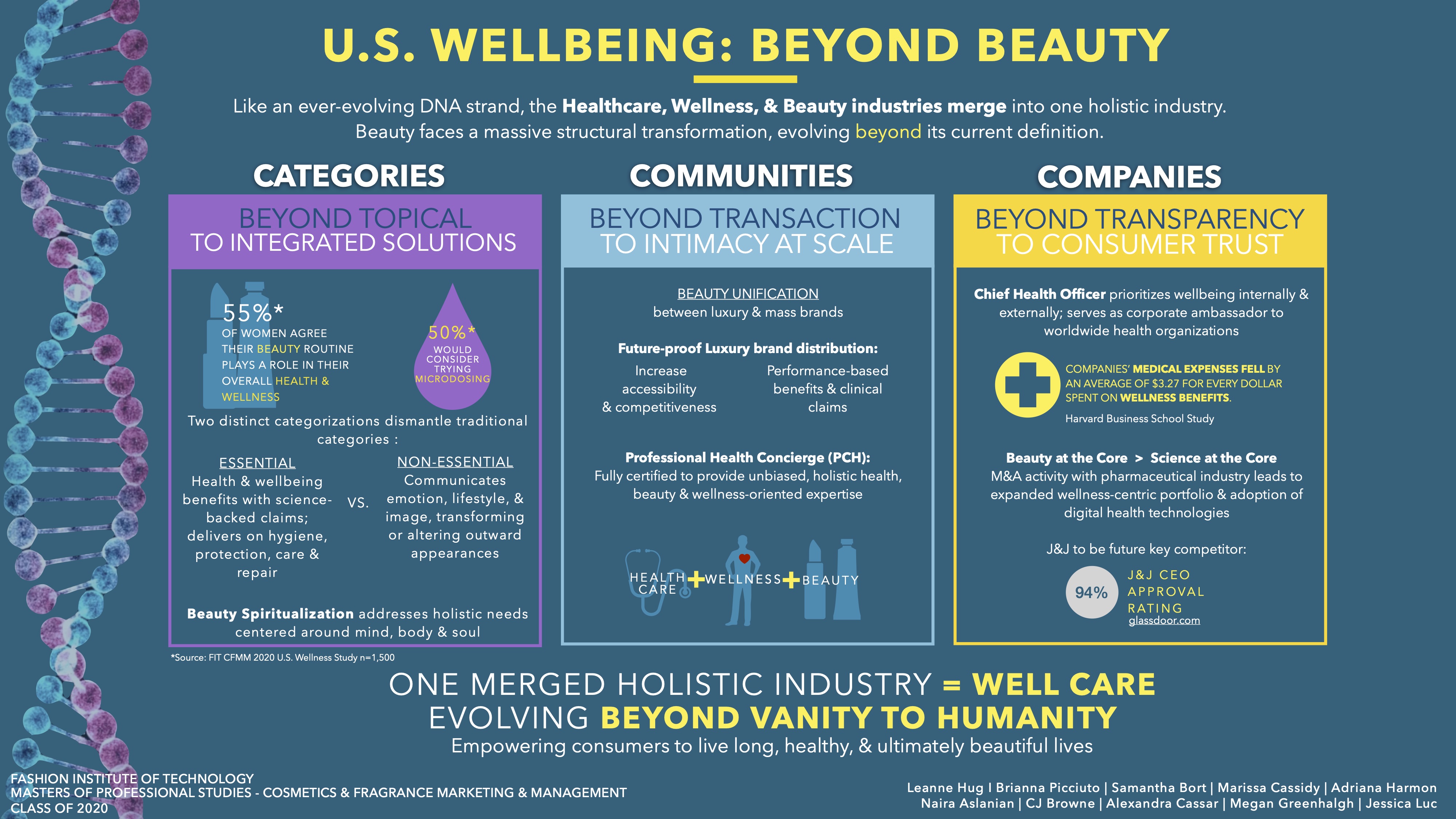
On Wednesday, October 28, two teams of graduates from FIT’s master’s degree program in Cosmetics and Fragrance Marketing and Management (CFMM)—known as the beauty industry’s think tank—presented their findings on The Global Impact and Future of Well-Being.
The audience tuned into the virtual presentations to hear the teams’ findings on how the concept of wellness is evolving across markets, cultures, and societies into a new global consumer focus on holistic well-being. This evolution is permeating a vast array of industries throughout the private and public sectors with deep roots in socioeconomics, politics, health care, and environmentalism. Well-being spans nations and generations, impacting consumers from Gen Z through the baby boomers, the teams posited. It is both a cause and an outcome of the decline in consumerism among millennials, with tremendous implications for the future of consumer packaged goods, especially in the beauty industry.
The students—all of whom work in the beauty industry —presented their findings along two themes: Global Wellness: The Impact on Nations and Citizens, and Holistic Well-Being: The Impact on Beauty Brands and Consumers.
A brief summary of their findings is as follows:
Global Wellness: The Impact on Nations and Citizens
The global shift in personal values has driven policy changes in developed countries. CFMM’s research from international data revealed that individuals have begun to prioritize health and happiness over ambition (including the pursuit of higher income and career advancement), and more citizens began to expect their governments to be proactive in caring for their overall well-being.
In some countries, this ideological shift is gaining ground and impacting government policies: The United Arab Emirates has appointed the first “Minister of State for Happiness,” and New Zealand’s well-being budget focuses on tackling mental health, child poverty, and family violence. However, CFMM also found that the rise of wellness has gone hand-in-hand with the ever-increasing global wealth inequality gap. Wellness as a business is accessible only to a small portion of the population and is becoming another highly visible indicator of social status at a time when the gap between the most affluent class and the rest of the population is becoming wider than ever.
Holistic Well-Being: The Impact on Beauty Brands and Consumers
A wellness industry that was founded on the principles of natural ingredients, fitness, and self-care has quickly evolved into an entire sub-sector of goods and services that address a consumer’s holistic state of well-being. This also encompasses facets of the pharmacy and health care industries, financial health, nutrition, time management, and technology. As focus shifts toward the need for nurturing both physical and mental health, the concept of holistic well-being has started to take hold, impacting the future state of micro-markets, including the beauty industry. With the intention of personal well-being mastery only growing over time, both retailers and brands must future-proof their businesses to remain relevant in this increasingly complex, all-encompassing, highly strategic industry.
For more detailed information on all the research, the students’ whitepapers can be found here.

